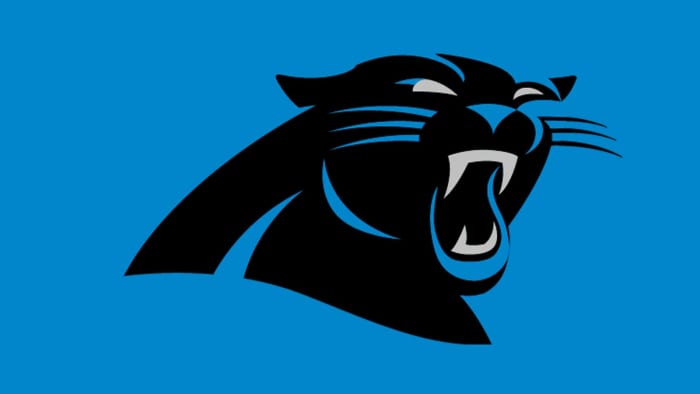Deon Grant is a former second-round draft pick of the Panthers who registered 30 career interceptions in 12 NFL seasons as a safety with Carolina, Seattle and the Giants.
Grant now works with the NFL Players Association as a "trust captain," working with former players.
What is being a "trust captain" all about?
"It's powered by the NFLPA. It's really just trying to help the guys, so they feel as successful as when they were playing the game. There are a lot of programs we have available that guys may not have been aware of when they were playing: mental health awareness, suicide prevention, programs for guys who want to go back to school. And if guys are still straddling that fence where they still want to play but they don't have anywhere to work out, we make sure we take of that for at least a couple of years or until they can get with a team."
And you are assigned certain teams in a region?
"Some of (the trust captains) are. I'm one of the guys assigned according to specific teams: New York, Seattle, Tennessee and Carolina. So I'm mostly up and down this East Coast, and then the Northwest because I played there also. I've been doing it two or three years now."
How satisfying is it to be able to help some former players?
"Oh, I love it. That's the main reason I joined the team I'm on when they reached out to me and told me exactly what it was.
"Being a players' rep when I was playing, that was my whole mentality – to try to get as much knowledge to the guys as I could, to set 'em up for when they were done playing. So once I retired and they told me this was available, I hurried up and jumped on it."
During the course of a year, do you go talk to guys on an as-need basis or is it more structured where you visit certain teams at certain times?
"It works different ways. We travel to different teams and try to get relationships with (the current players) because if we can catch the guys before they're out of the league, guys who have at least two or three years under their belt, we try to build relationships with them so that once they're walking out that door they know exactly what their next step needs to be.
"Also, we travel when we know a guy might be going through something. For example, last year an older gentleman whom I had never met but we had a similar path and had played for some of the same teams, he was going through some depression as far as contemplating suicide. His mind was almost made up. It was a conversation that I was able to have with him and his wife that got him saved, and we put him in a program that we offer. He's been happy ever since and calls me frequently to tell me thanks."
Sometimes when you play football from when you're a youth, and then it suddenly ends, guys can feel a little lost, can't they?
"That's how 'the trust' was created. We would ask throughout the years why some players' transition into life after football was more successful than others. Nobody could come up and answer the question, so that's why this team was created. We thought, 'Let's put some boots on the ground and figure this issue out and balance it out the best way we can.'"
Let's talk about your NFL career in general, and specifically your four-year stint with the Panthers that almost didn't get off the ground because of a terrible broken hip injury you suffered as a rookie in your first training camp. What do you remember about that?
"I can't forget. I've got a big 'ol scar from my backside all the way down the side of my leg. I just remember grinding and being focused … and finally getting into training camp, and that day the coach telling me I was going to be with the starters. Even though we were practicing against Detroit that day, all I was doing was back-pedaling and next thing I knew my leg hyperextended and I was on the ground.
"I blacked out and woke up in the ambulance, then again when I got off the helicopter in Charlotte. The memory that stands out the most wasn't the pain and that particular injury, but the fact that the owner (Jerry Richardson) was in the ambulance, rubbing my feet and trying to keep me calm. That stood out more than the injury itself – because I don't think you'll find that at too many teams where the owner is at training camp and he'll get in an ambulance with one of his players, and especially one of his rookie players that's not really invested like (a veteran) yet.
"That's what stands out from that. And it's one of the reasons I'll always have love for the Panthers, and definitely for the whole family of Jerry Richardson."
There were plenty of people at the time who thought the injury was so bad that you would never play in the NFL, yet you went on to play 12 seasons. How rewarding was that?
"It was a blessing. A lot of people thought it was over because that was what was in the press – and that's what the doctors said. So it definitely was correct.
"But through the grace of God and hard work and belief in everything, I was able to come back and have a successful career. But yes, it was said that it was definitely over for me."
And yet you came back to start the very next season in 2001?
"Yeah, that was a tease. I had an interception that first game of the season in Minnesota and we won, but then we didn't win another game that year, so that was tough. Two years later we made it to the Super Bowl, though, and later on in my career I was able to win a Super Bowl with the New York Giants. So it's all good."
















